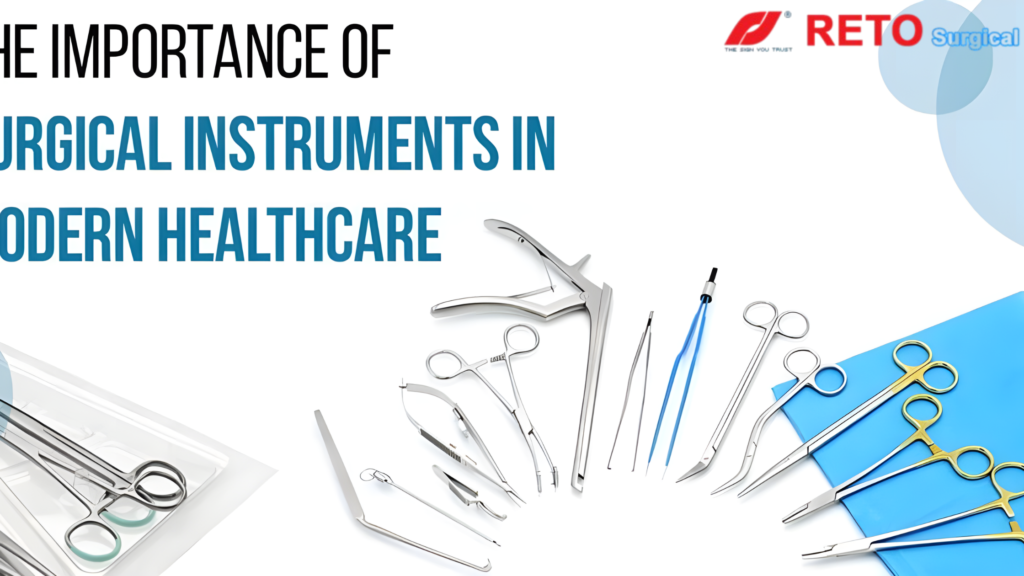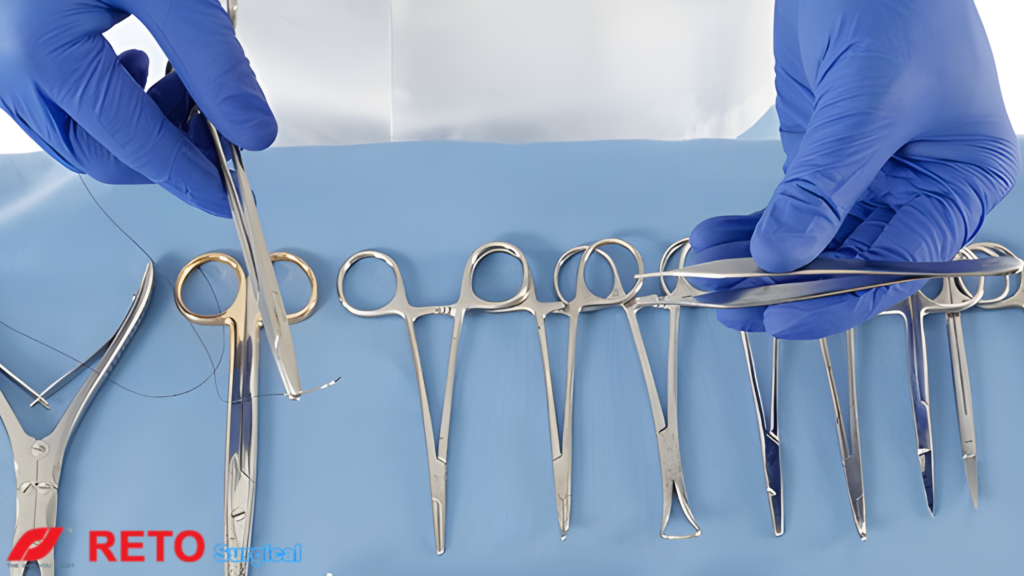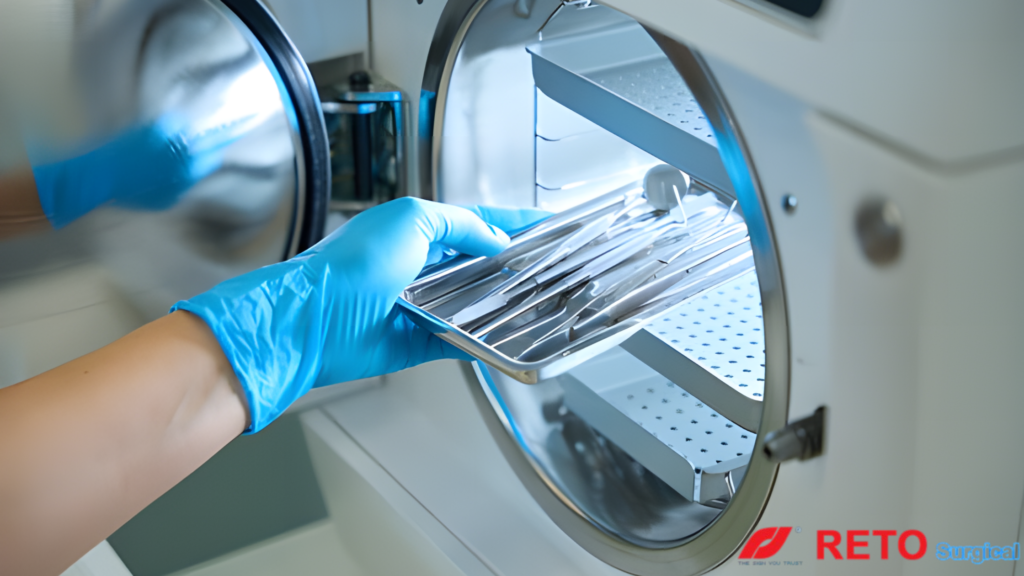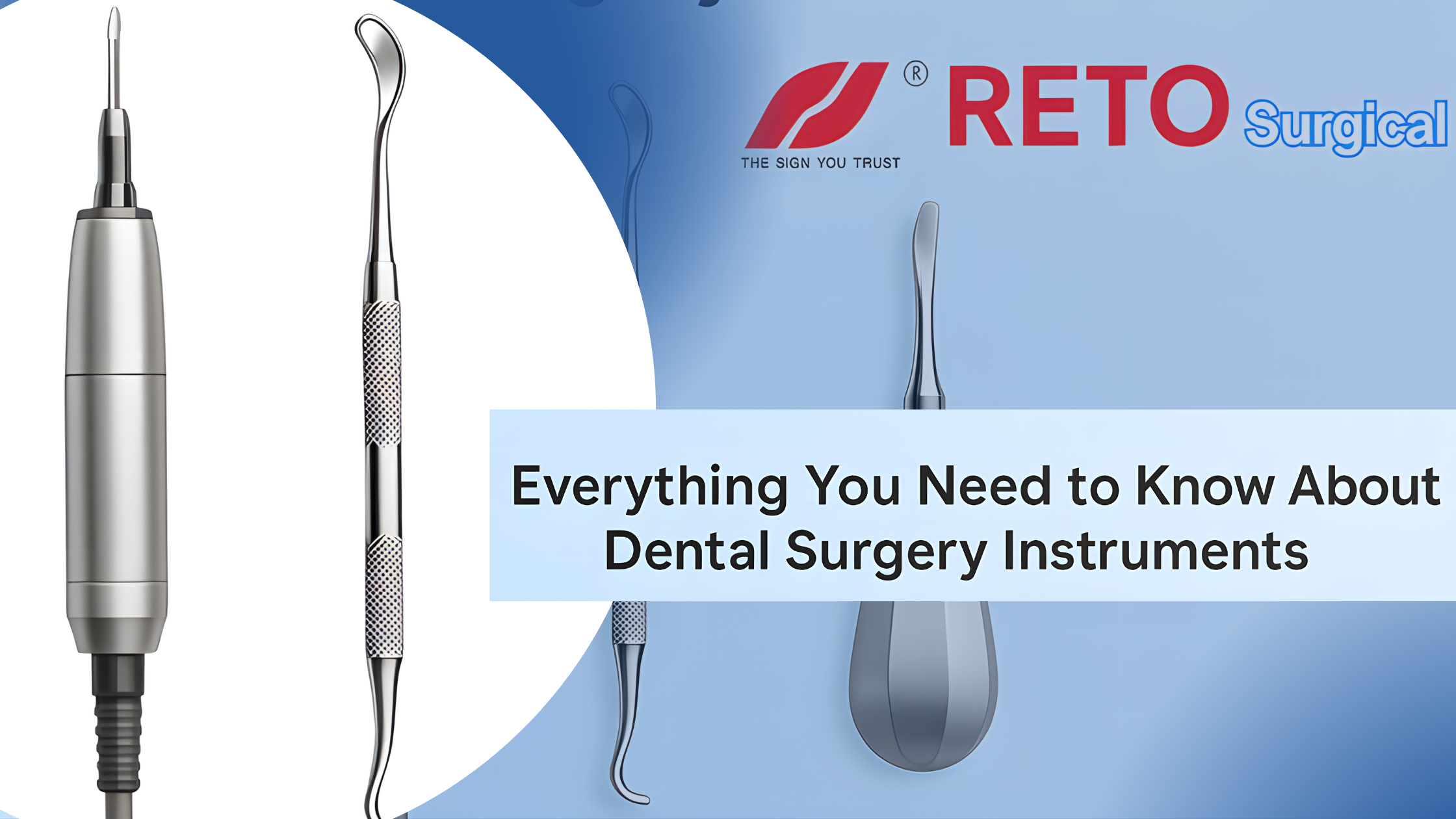Everything You Need to Know About Dental Surgery Instruments
Essential Dental Surgery Instruments: Tools for Precision and Safety
A specific set of equipment is required for dental surgery to guarantee accuracy, productivity and patient safety. Each tool, from ordinary people such as forceps and scalpels such as dental lifts and bone chisels, is essential for various oral surgical processes. The most important results are encouraged, and the chances of complications with sterile, better equipment are reduced.
Surgical mirrors increase vision during treatment, while suction devices maintain a clear area. Development in dental technology continues to improve ergonomics and performance of equipment, which is fixing their design. It is necessary to understand these important equipment for dentists committed to offer safe, effective surgical care.
Why the Right Dental Surgical Instruments Matter
For some reason, accurate, better Dental Surgery Instruments appliances are necessary.

- Precision: Many oral structures are small and delicate. The device should give accurate control over small, delicate areas to dentists.
- Efficiency: Well-manufactured tools reduce operating time and the patient’s risk and pain.
- Security: Infections, tissue injuries, and procedural mistakes can be avoided by ergonomically designed and properly using sterilized devices.
- Ergonomics: Modern equipment improves overall performance and reduces the risk of fatigue of the doctor by reducing the pressure on the hands and wrists of the dental surgeon.
Essential Dental Surgery Instruments
The most essential dental surgery instruments are as follows:-

- Scalpel and Blade: The most basic in scalpel dental surgery is one of the required equipment. The gums and other delicate tissues are cut properly using it. A reusable handle and a disposable blade form a scalpel.
- Dental Lift: Teeth are extracted from their sockets using dental lift. By gently improving the tooth and applying regulated force in periodontal ligament, the lift reduces damage to the surrounding bone and tissues.
- Extraction forceps: When a tooth is adequately loosened, extraction forceps are used to catch and remove it. To accommodate various tooth structures, the forceps are available in a range of forms.
- Needle holder: Similar to scissors, a suture needle is held in place while stitching by a locking mechanism in needle holders. By offering stability and control, they lessen the chance of needle slippage or puncture.
Importance of Sterilisation and Maintenance

Sterilisation of dental equipment is essential. Instruments must be carefully cleaned and sterilised before and after each use to prevent the spread of illnesses. Its primary techniques consist of:
- Autoclaving
- Ultrasonic cleaning for removing debris
- Sterilisation using chemicals for heat-sensitive instruments
Furthermore, longevity and performance are guaranteed by regular maintenance such as inspection and sharpening.
Tips For Choosing the Right Dental Surgery Instruments
The Proper Dental Surgery Instruments must be chosen for oral surgical operations to be precise, safe, and effective. Proper instruments also improve the dentist’s comfort and control during procedures. To assist you in selecting the ideal dental surgical tools for your clinic, consider the following crucial tips:
1. Opt for Ergonomic Designs
Selecting tools with ergonomic grips and handles will help you avoid hand fatigue throughout lengthy processes. Instruments with non-slip handles and balanced weight distribution improve control and accuracy, improving performance and safety.
2. Maintain an Extensive Instrument Set
Stock your clinic with various equipment sizes and types to manage dental procedures and anatomical variances. Having the correct tool, such as different extraction forceps or blade sizes, enhances productivity and results.
3. Stay Updated on New Technologies
Technology in dentistry is developing quickly. Keep up with the latest developments in surgical instruments that can improve surgical accuracy and lessen practitioner fatigue due to their better ergonomics, coatings, or functionality.
Conclusion
Any dental professional should be efficient in the fundamental devices used in dedicated surgery to provide safe, effective and accurate surgical care. Each instrument increases the patient’s comfort, visibility and control during dental treatment, from suction devices and stitches to scalpel and lift. As a dental technology, these devices continue to improve the context of accuracy, durability and ergonomics. Maintaining stringent sterilization processes and current with new development guarantees the best possible surgical results and increases the standard for the level of dental practices.
FAQ’s
Q1. What is the purpose of a sickle probe?
Periodontal probes check the periodontal pockets and identify disorders such as gum recession, whereas sickle probes are used to find cavities and other oral diseases.
Q2. Are dental instruments reused?
Many instruments used in the dental office are designed to be used more than once. To help keep them free of germs between patients, the dental office has a thorough cleaning routine as part of its procedures. Any instrument that is used in the mouth must be cleaned, inspected, and sterilized or disinfected.
Q3. How many different types of Dental Surgery Instruments are there?
Common categories for dental instruments include periodontal, endodontic, orthodontic, restorative, surgical, diagnostic, and auxiliary. For example, scalers and curettes are used in periodontal care, whereas explorers and mirrors are part of the diagnostic equipment.
Q4. What is a basic setup for Dental Surgery Instruments?
A suction holder, two dental mirrors, two cotton pliers, a metal or plastic periodontal probe, and a hemostat are frequently included in the basic set of Dental Surgery Instruments . Additional necessary instruments include scalpels, retractors, and surgical scissors.
Q5. How do you sterilize dental tools at home?
Just make sure the item is not made out of soft plastics or rubbers that might be warped by the temperature of the water. This is the easiest way to sanitize a dental tool like a toothbrush.

